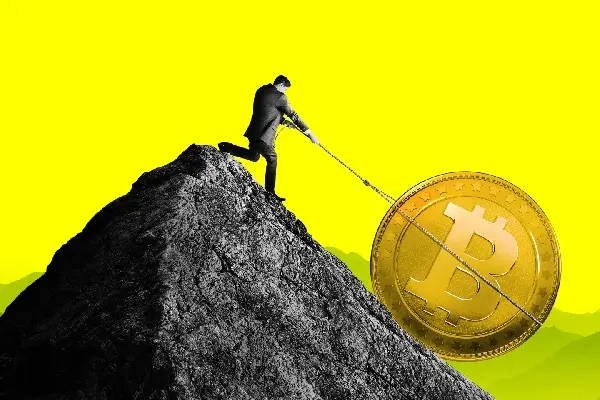Bitcoin has been a hot topic for years, sparking debates about its profitability, ethics, and permissibility in Islam. From speculative investments to tales of electricity theft and mining, Bitcoin has captured imaginations—and wallets—worldwide. Let’s delve into its world with stories, facts, and an Islamic lens to understand this fascinating yet complex digital currency.
Bitcoin and Me: A Missed Opportunity or a Blessing in Disguise?
More than a decade ago, I received an email inviting me to buy Bitcoin. At the time, it felt like a speculative gimmick or even a scam, so I ignored it. Looking back, had I taken the plunge, I might have become a Bitcoin thousandaire, if not a millionaire.
But was ignoring it a loss or a blessing? Years earlier, I had drafted a book on forex trading that could have earned me passive income through ads and affiliate links. Yet, as I delved deeper, I realized I was indirectly promoting activities that contradicted Islamic principles—leverage, overnight interest, and short selling, among others. Alhamdulillah, I stopped myself from proceeding.
Perhaps the same intuition guided me away from Bitcoin. After all, is making money worth compromising your principles?
16GB USB keychain wth Quran recitations
What is Bitcoin?
Bitcoin is a digital currency (or cryptocurrency) that operates on a decentralized network called blockchain. Unlike traditional money, Bitcoin isn’t controlled by a central authority like a government or bank. Instead, it’s created through a process called mining, where computers solve complex mathematical problems to validate transactions.
There will only ever be 21 million Bitcoins, making it scarce by design. As of now, about 19 million have been mined, leaving only 2 million left. But mining is becoming harder due to a process called the halving mechanism, which reduces rewards for miners every four years.
Bitcoin Mining: Stealing Electricity and the Diminishing Returns
Bitcoin mining demands immense computational power, and thus, massive amounts of electricity. In some regions, unscrupulous miners resort to stealing electricity, setting up operations in abandoned buildings or shophouses, bypassing meters to avoid costs.
Authorities have cracked down on such setups, as they overload local grids, causing blackouts and financial losses. The environmental impact is another concern, with mining consuming energy comparable to small countries!
For small-scale miners, the reality is grim:
- The cost of specialized equipment is high.
- Electricity bills (if paid legally) often exceed the value of mined Bitcoin.
- With less than 2 million Bitcoin left and the halving mechanism in place, mining is becoming a game only for the big players.
In short, for individuals, mining is no longer the golden ticket it once was.
Bitcoin in Islam: Halal or Haram?
The Islamic perspective on Bitcoin hinges on several factors, much like the principles that stopped me from pursuing forex trading. Let’s explore both sides:
1. Why Bitcoin May Be Haram:
- Speculation and Gambling:
Bitcoin’s price is highly volatile, making it akin to gambling (maisir) when used for speculative trading. Islam prohibits such high-risk transactions. - Lack of Intrinsic Value:
Critics argue that Bitcoin isn’t backed by tangible assets, raising concerns about its legitimacy as a medium of exchange under Islamic law. - Potential for Unlawful Use:
Bitcoin’s anonymity has been exploited for illicit activities, further clouding its ethical standing.
2. Why Bitcoin May Be Halal:
- Neutral Technology:
Bitcoin, like any tool, is neutral. Its permissibility depends on its usage. For example, using Bitcoin for lawful purchases or trade may align with Islamic principles. - Decentralization and Transparency:
Bitcoin’s blockchain ensures transparency and eliminates the need for intermediaries, potentially reducing corruption. - Recognition by Authorities:
In jurisdictions where Bitcoin is regulated, some scholars see it as permissible.
A Balanced Approach
Islamic scholars are divided on Bitcoin’s permissibility. While some deem it haram due to its speculative nature, others take a conditional view, allowing its use if it avoids prohibited elements like riba (interest) and gharar (uncertainty).
For those unsure, the best course is to consult trusted Islamic scholars and reflect on whether it aligns with Islamic values.
Conclusion: Lessons Learned from Bitcoin and Beyond
Bitcoin is undeniably intriguing, offering a glimpse into the future of money. Yet, it’s also a cautionary tale. From electricity theft and environmental damage to ethical dilemmas, Bitcoin challenges us to think beyond profits.
For Muslims, the question isn’t just “Can I make money with Bitcoin?” but also “Can I do so while staying true to my faith?” As with all financial decisions, due diligence and a clear conscience are key.
Bitcoin might have made millionaires, but it also serves as a reminder: not all that glitters is gold.
Share Your Thoughts
Have you had an experience with Bitcoin, or do you have insights on its permissibility in Islam? Share your thoughts in the comments!
Disclaimer: This blog is for informational purposes only and not financial or religious advice. Consult your financial advisor or Islamic scholar for tailored guidance.
Sertai komuniti kami melalui Newsletter.
Terima Kasih
Terima Kasih

Leave a comment
Your email address will not be published. Required fields are marked *












